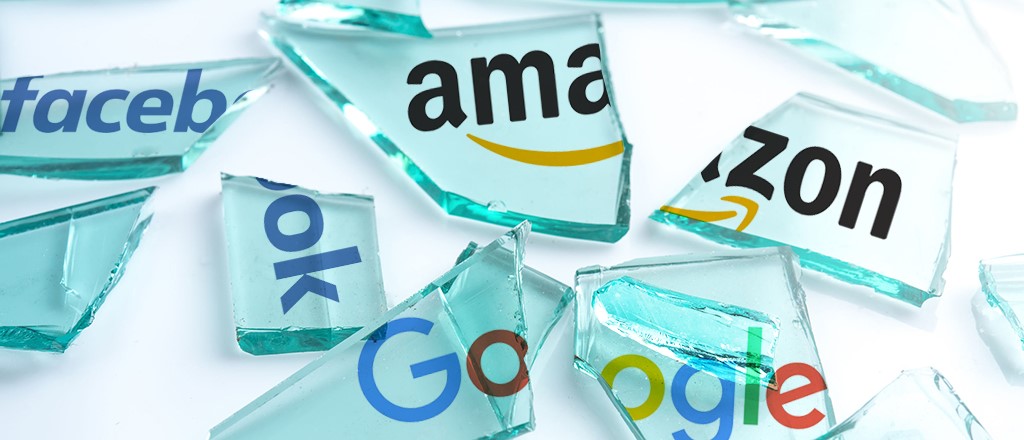Here’s What Congress Is Saying About Big Tech Monopolies

by Ella Casey ‘21
For about 16 months, Congress had set out on an investigation into the practices of the largest technology companies in the world. After over a year they have finally made a statement, and it was unexpected, to say the least.
On Tuesday, October 6 the House Judiciary Committee released a report stating that the big tech companies of Amazon, Apple, Facebook, and Google were on the verge of being considered to have monopoly power. Congress has, surprisingly, come to a near total consensus that these four tech giants abuse their power to ensure a lack of competition and perpetually grow their enterprises. In this same statement, the Committee also recommended that Congress look further into reforming and adjusting antitrust laws–those which regulate the conduct of corporations so a trust (essentially a synonym for monopoly) cannot be formed, thus keeping a fair, competitive market.
The report itself had several reasons which they saw necessary for further regulation to be established for these companies. The bulk of the evidence supports that these corporations are domineering for the reason that it seems nearly impossible for any small, competing companies to share success in these industries in fear of stepping on the toes of these large, powerful enterprises.
“Market participants expressed deep concern that speaking about the dominant platforms’ business practices … would lead a platform to retaliate against them, with severe financial repercussions,” stated the Subcommittee on Antitrust in their report.
“[Amazon] would remove our access and destroy our business,” an anonymous small company told the subcommittee. And a group of app developers “worried that their private communications [were] being monitored, so they [wouldn’t] speak out against [Apple’s alleged] abusive and discriminatory behavior,” disclosed one attorney who was representing the group.
Another large reason for the Judiciary Committee’s stance was that these companies have grown not only in economic power, but political influence too. Such large enterprises have an enormous reach to go along with their monetary capacity, and thus can have an impact on how they are monitored.
“Through a combination of direct lobbying and funding think tanks and academics, the dominant platforms have expanded their sphere of influence, further shaping how they are governed and regulated,” the report states.
Further investigations and trials are being held in question of these companies’ practices, but it is unclear what action, if any, will actually be taken by Congress past this point. The case presented by the House Judiciary Committee, while bringing up some valid arguments, was in several stances quite vague or unsubstantiated. Most of the report seemed to consist of complaints from smaller competing–and failing in comparison–– companies, which has the potential for considerable bias in these accounts. For these reasons nothing much may come from these inquiries, since there is little fully fleshed out evidence of corruption or domination in these big tech companies actually presented.
If action against these corporations were to be taken, and they were found to be abusing their disproportionate share of power, it could have the potential to change the everyday lives of the entire country–perhaps the world. There is a reason these companies are household names. We use their products and platforms in nearly every aspect of our lives: for school, for work, for entertainment, for overall efficiency. Perhaps it would only take an adjustment period, but just try to imagine not seeing another search engine, like Bing, and cringing that it is not a Google browser–it’s practically ingrained in our minds now. Companies like Google, Apple, Amazon, and Facebook influence so much of our lives and we may not realize just how much of the world that they control.
————————————————————————————————-
Update:
The Department of Justice, on October 20, launched an antitrust lawsuit against Google. They argue that the tech giant has been implementing business tactics to exclude competing companies from success in the industry. A large basis of this argument lies in the billions of dollars spent on paying companies to have Google as the default search engine. To counter this, Google released statements defending that they promote their services the same as any other business, and are not the sole option–or the default one–for several products, like Microsoft’s Windows devices. Though it will likely take years for the case to be settled, it has potential to set a precedent for all other large tech companies, by shifting the vague laws on monopolies to fit the modern era of business and technology. Perhaps the lawsuit could pave the way for alternative tech companies to rise up with improved technology and challenge Google in light of this dispute.